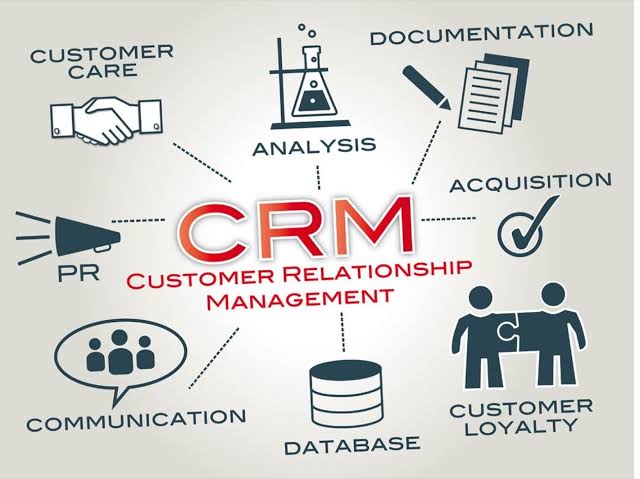In today’s competitive business world, building strong customer relationships is key to long-term success. As of July 2025, customers expect personalized service, quick replies, and smooth experiences on many platforms. Customer Relationship Management (CRM) systems are important tools for businesses to meet these needs and keep customers loyal.
CRM is more than just software—it’s a strategic approach to managing interactions with current and potential customers. When used effectively, it helps businesses understand their audience, streamline communication, and improve service delivery. However, the true power of CRM lies not in its features but in how businesses use it to genuinely connect with their customers. The following tips outline how organizations can leverage CRM to build stronger, more meaningful relationships that drive growth and satisfaction.
Understand Your Customer Base Deeply
A strong CRM system allows businesses to gather and analyze a wealth of customer data—from purchase histories and feedback to preferences and interaction patterns. But simply having this data isn’t enough. To build meaningful relationships, businesses must dig deeper to understand what motivates their customers.
Segmenting customers based on behavior, demographics, or engagement levels helps personalize marketing and service strategies. For instance, knowing that a customer prefers email communication over phone calls or frequently purchases a specific product line allows you to tailor outreach accordingly. When customers feel seen and understood, their trust in the brand increases, paving the way for long-term loyalty.
Personalize Every Interaction
As of 2025, personalization has shifted from being a luxury to an expectation. Customers are far more responsive to messages and offers that reflect their individual needs, preferences, and past interactions. CRM tools make personalization much easier by providing detailed customer profiles and automated workflows that adjust content based on behavior.
Whether it’s addressing customers by name in emails, offering product recommendations based on past purchases, or sending reminders for upcoming appointments, personal touches go a long way. Even in industries with high volumes of clients, CRM automation can ensure that each interaction feels unique and relevant. This kind of personal engagement can significantly improve customer satisfaction and retention.
Automate Responsibly, Communicate Authentically
One of the strengths of modern CRM systems is their ability to automate repetitive tasks—follow-up emails, birthday greetings, payment reminders, and more. Automation improves efficiency, but it must be used with care. Over-automation can make interactions feel robotic and impersonal if not balanced with genuine human communication.
Businesses should use CRM automation to support—not replace—authentic communication. For example, automated messages should still reflect the brand’s voice and be written with empathy. At critical points in the customer journey, such as resolving complaints or managing complex queries, real human support should be available. A blended approach ensures customers receive timely communication without feeling like they’re just another entry in a database.
Keep Your CRM Data Clean and Updated
An often overlooked but essential CRM tip is maintaining accurate, updated data. Outdated or incorrect information can lead to poor personalization, missed opportunities, and awkward interactions. For instance, sending a promotional email for a product a customer already bought—or worse, misspelling their name—can erode trust.
Regularly audit your CRM to clean out duplicate records, correct errors, and remove inactive contacts. Encourage your team to update customer profiles after every meaningful interaction. Some advanced CRM platforms now offer AI-powered tools that help detect inconsistencies and suggest updates automatically. A clean CRM is a powerful foundation for meaningful engagement.
Train Your Team Thoroughly
CRM tools are only as effective as the people using them. One of the biggest reasons CRM strategies fail is due to poor user adoption or inadequate training. All team members who interact with customers—sales reps, customer service agents, marketing staff—should be trained not only on how to use the CRM software, but also on its role in the overall customer experience strategy.
Training should cover data entry best practices, reporting functions, and how to use insights to improve service. In 2025, many companies are integrating CRM training into onboarding processes and offering regular refresher courses to keep staff updated as the system evolves. A well-trained team is essential for translating CRM insights into genuine relationship-building efforts.
Use CRM Insights to Proactively Solve Problems
CRM systems offer valuable insights that can be used to identify pain points and anticipate customer needs. For example, if a certain product has a high return rate, or if customers often reach out with similar complaints, CRM data can highlight these issues early. Addressing them proactively—either through better instructions, revised products, or improved customer support—demonstrates a commitment to customer satisfaction.
Likewise, if a loyal customer hasn’t engaged with your brand in a while, CRM alerts can prompt follow-up actions such as a personalized message or special offer to re-engage them. Predictive analytics in CRM platforms are becoming more sophisticated in 2025, giving businesses the edge in staying one step ahead of customer expectations.
Integrate CRM Across Departments
To provide a consistent and unified customer experience, your CRM system must be integrated across all relevant departments—sales, marketing, customer service, and even logistics. Siloed systems and disconnected workflows can result in fragmented experiences, duplicate communication, or service delays.
A centralized CRM allows all teams to access the same customer information and collaborate effectively. For instance, marketing can create targeted campaigns based on feedback collected by customer service, while sales can follow up with leads that interacted with recent promotions. This integration fosters seamless experiences that customers appreciate and remember.
Collect Feedback and Act on It
Another key way CRM can help build stronger relationships is by managing customer feedback efficiently. Whether through post-purchase surveys, customer service ratings, or social media reviews, collecting and analyzing feedback within the CRM system helps you understand what’s working and what needs improvement.
More importantly, showing customers that their opinions are valued—and acting on their feedback—strengthens trust and loyalty. Let them know when their suggestions lead to changes, whether it’s a new feature, improved service process, or a product update. Feedback loops not only improve service quality but also make customers feel like co-creators in the brand journey.
Final Thoughts
Customer Relationship Management is no longer just about organizing contacts—it’s about building relationships that drive sustainable growth. As of July 2025, the most successful businesses are those that use CRM tools not just to manage data, but to create meaningful, personalized, and proactive engagement with their customers.
By focusing on clean data, personalization, automation with empathy, team training, and cross-department integration, companies can unlock the full potential of their CRM systems. Ultimately, the goal is to make every customer feel valued, heard, and understood—and that’s the foundation of long-term loyalty and business success.




tqbdvn
Yes! Finally something about 54004.